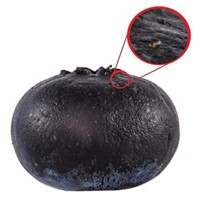Advertisement
Grab your lab coat. Let's get started
Welcome!
Welcome!
Create an account below to get 6 C&EN articles per month, receive newsletters and more - all free.
It seems this is your first time logging in online. Please enter the following information to continue.
As an ACS member you automatically get access to this site. All we need is few more details to create your reading experience.
Not you? Sign in with a different account.
Not you? Sign in with a different account.
ERROR 1
ERROR 1
ERROR 2
ERROR 2
ERROR 2
ERROR 2
ERROR 2
Password and Confirm password must match.
If you have an ACS member number, please enter it here so we can link this account to your membership. (optional)
ERROR 2
ACS values your privacy. By submitting your information, you are gaining access to C&EN and subscribing to our weekly newsletter. We use the information you provide to make your reading experience better, and we will never sell your data to third party members.
Biological Chemistry
Insecticidal fern proteins protect genetically modified cotton from pests
The newly created plants are the first to ward off whitefly-inflicted damage in cotton fields
by Ryan Cross
September 19, 2016
| A version of this story appeared in
Volume 94, Issue 37
Cotton farmers have a fight to pick with whiteflies. The sap-sucking insects stunt crop growth, and their sticky excrement fosters detrimental fungal infections. Whiteflies also carry hoards of viruses that can wipe out entire fields. Farmers often plant genetically modified (GM) crops including corn, soybeans, and cotton that produce their own insecticides called Bt toxins. But whiteflies are unfazed by Bt toxins, leaving cotton fields defenseless. That inspired Pradhyumna Kumar Singh of India’s National Botanical Research Institute to search for an alternative. Noticing that whiteflies rarely bother fern plants, he screened 38 fern species to uncover natural insecticides against the whitefly species Bemisia tabaci. Singh and colleagues discovered a protein in the edible fern Tectaria macrodonta that they named Tma12. When inserted into cotton plants, the Tma12 gene provided resistance to more than 99% of the whitefly population while leaving ladybugs—natural predators of whiteflies and aphids—unharmed. Toxicity studies in rats found no adverse effects from Tma12 exposure (Nat. Biotechnol. 2016, DOI: 10.1038/nbt.3665). The authors note that “the absence of known allergenic motifs suggests that Tma12 might be a promising candidate for the development of GM crops.”





Join the conversation
Contact the reporter
Submit a Letter to the Editor for publication
Engage with us on Twitter